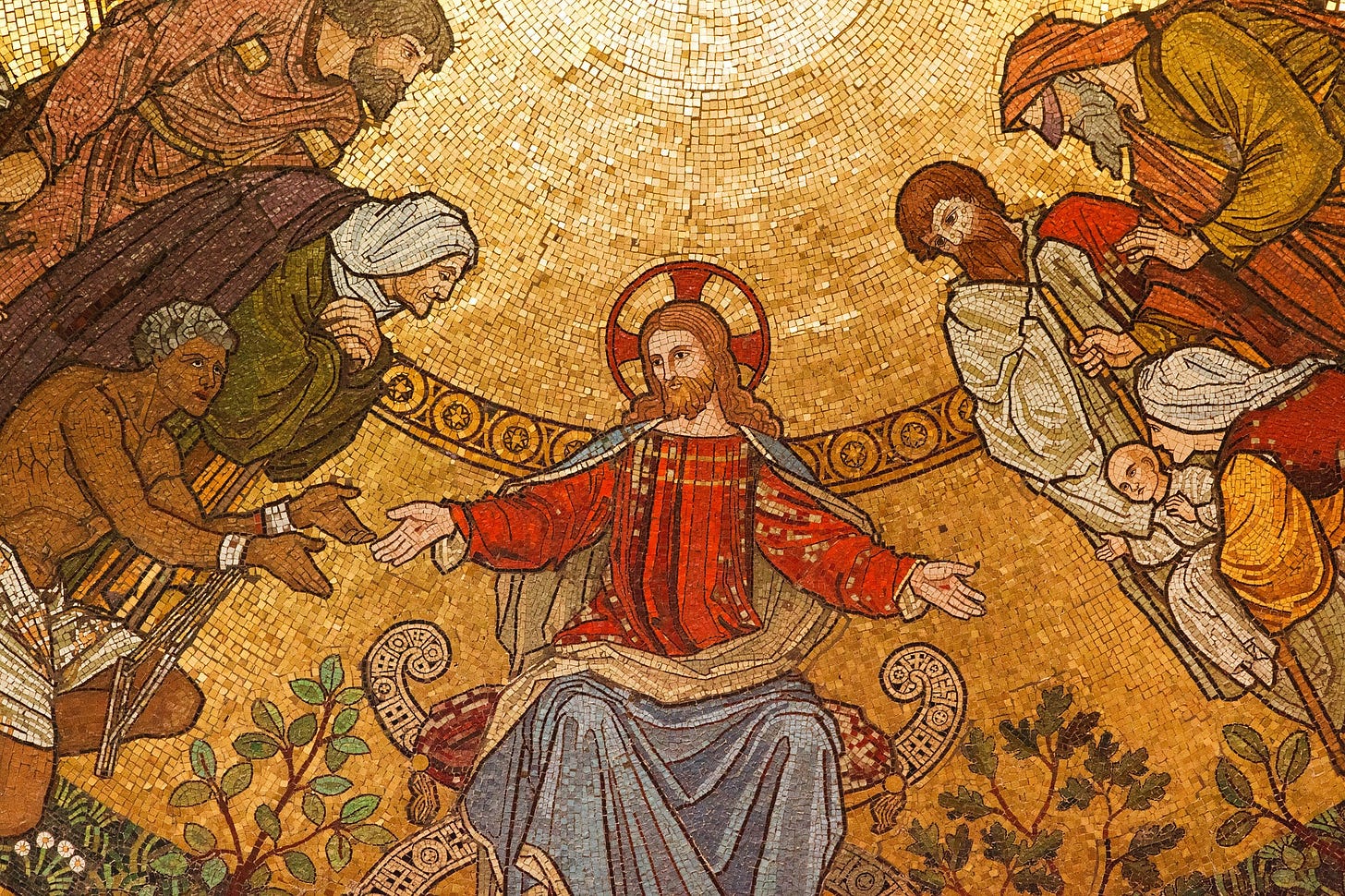What can be known about Jesus of Nazareth using historical methods alone? Do the results reinforce or threaten historic Christian faith? Is the enterprise of historical Jesus research even legitimate? Attempts to answer these and related questions over the last 200-plus years have led scholars to speak of three major quests of the historical Jesus. In about 1980, we embarked on the third quest, which has produced large tomes by leading lights such as E. P. Sanders, John Dominic Crossan and N. T. Wright, to name but three. These scholars, like most other contributors to all three quests, have focused largely if not exclusively on the Synoptic Gospels, believing the Gospel of John to be too different, too late, and too overlaid with the theology of the evolving church at the end of the first century to aid in understanding the Jesus of history. For the last decade, however, the amount of Jesus research has tailed off noticeably. Some observers argue that the third quest has done about as much as it can, and some of them think that the enterprise overall has played itself out. Others suggest that the criteria of authenticity employed to determine what Jesus most likely said and did are irreparably flawed.
Meanwhile, the last forty years have also produced a gradual but noticeable growth in the confidence many specialists place in genuine history that can be recovered from the Fourth Gospel. This “new look on John,” as the Anglican Bishop of Cambridge John Robinson dubbed it several decades ago, has led to the ongoing “John, Jesus and History” Seminar at the Society of Biblical Literature, which has produced three large volumes of essays by a broad cross-section of scholars, with at least three more in the works. The chair, Paul Anderson, began calling for a fourth quest of the historical Jesus, one that would give John parity as an equally viable “database” for scrutiny when trying to recover authentic information about Jesus. Enough work has been done since Anderson first issued the call that he now confidently announces that the fourth question is underway.
Will it progress? Will it captivate enough scholars’ interest that others will recognize it as a bona fide new stage in Jesus research? What criteria or approaches should it use? A little book from 2012, edited by Chris Keith and Anthony Le Donne, suggests the old critical tools hold no promise. At least that is what one might imagine from its title, Jesus, Criteria, and the Demise of Authenticity. Yet the contributors to this volume do not interact with two of the most important works of the third quest to emerge (both in 2009): Craig Keener’s The Historical Jesus of the Gospels and a collection of studies by the Institute of Biblical Research’s Historical Jesus Study Group, edited by Robert Webb and Darrell Bock, entitled Key Events in the Life of the Historical Jesus. Unfortunately, many others have also not given these books the attention they deserve, no doubt in large part because they don’t produce some new revolutionary portrait of Jesus but reinforce the main contours of the Synoptic Jesus.
Nevertheless, not all of the contributors to the Keith and Le Donne anthology are equally skeptical. Dagmar Winter, for example, mentions what she developed in her doctoral work under Gerd Theissen and dubbed die Plausibilitätskriterium (“the plausibility criterion”), complete with four parts that remarkably resemble what N. T. Wright called the criterion of double similarity and double dissimilarity. In a nutshell, when a particular feature of the Gospel tradition differs significantly from the rest of what we know about early first-century Palestinian Judaism, was not closely followed or imitated in the emerging Jesus-movement, including the rest of the New Testament, yet was not so unusual as to be anachronistic or incredible in Jesus’ Jewish environment nor so ignored by or unknown to the early church as to be merely idiosyncratic, it can be accepted as an authentic historical datum. Of course, this cannot be a necessary criterion for a feature of the Gospel tradition to be true, but it does seem to be a sufficient one, since no other Jew or Christian is likely to have invented it.
In my now twenty-year old book, The Historical Reliability of John’s Gospel, I demonstrated how just about every major passage in the Fourth Gospel had one or more significant features that could be authenticated by this four-part plausibility criterion. The “John, Jesus, and History” seminar and related studies have come at the Fourth Gospel from numerous angles, not least archaeology, to support the historicity of a number of distinctively Johannine details: the early period of Jesus’ ministry that overlapped with John’s, Jesus (or his disciples) baptizing his followers, an early temple cleansing, the existence of Nicodemus, the portrait of the Samaritan woman at the well, the healing of the nobleman’s son, Jesus’ self-identification in conjunction with the various Jewish feasts, people trying to take Jesus by force after he fed the 5000 to make him king, and so on.
Another approach is to return to a popular method of the ‘60s through the ‘80s and bracket the most likely redactional material (emphasizing key Johannine themes) from the various passages in John’s Gospel and see if recurring patterns emerge out of what is left. One very promising approach observes how much detail about cleansing or purifying appears, material congruent with but seldom identical to the Synoptic emphasis on Jesus’ “contagious holiness.” These details include Jesus baptizing, the water jars in Cana, the temple incident, “you must be born of water and the spirit,” “living water,” pools by or in which Jesus works miracles, and so on. In a forthcoming monograph, I adopt this approach to show how much supports Jesus as a “purifier.”[1] In our Western world with few analogies to ritual purity, this is an area Christians think little about. We tend to be worried much more about how we might become corrupted than about the cleansing role we might have with others and in society. In my opinion, the quest of the historical Jesus still has plenty of promising fruit to yield.
Notes
[1] Craig L. Blomberg, Jesus the Purifier: Furthering the Fourth Quest of the Historical Jesus (Grand Rapids: Baker, forthcoming).
— Craig L. Blomberg is Distinguished Professor of New Testament at Denver Seminary. He has authored or edited 20 books, including The Historical Reliability of the Gospels, Interpreting the Parables, Jesus and the Gospels: An Introduction and Survey, and commentaries on Matthew, 1 Corinthians, and James.
Image by PublicDomainPictures from Pixabay
News
Rare coin from 2nd Temple period discovered in Jerusalem’s Tower of David
New Movie Roe v. Wade Tells the Story of What Really Happened to Make Abortion Legal in 1973 America
Why reading books you disagree with helps you grow
Video: Extraordinary Claims Do Not Require Extraordinary Evidence (Featuring Dr. Tim McGrew)
3 Major Scientific Discoveries In The Past Century That Point To God
Multiple Source Attestation for the Resurrection of Jesus
Questions about Easter by gotQuestions.org
(*The views expressed in the articles and media linked to do not necessarily represent the views of the editors of The Worldview Bulletin.)
Join Christian thinkers like Lee Strobel, John Lennox, J. P. Moreland, Michael Licona, Sean McDowell, and Bobby Conway who look to The Worldview Bulletin for news, analysis, and encouragement for proclaiming and defending the Christian worldview!
“The Worldview Bulletin is a must-have resource for everyone who’s committed to spreading and defending the faith. It’s timely, always relevant, frequently eye-opening, and it never fails to encourage, inspire, and equip.”
— Lee Strobel, New York Times bestselling author of more than forty books and founding director of the Lee Strobel Center for Evangelism and Applied Apologetics
“I find The Worldview Bulletin very stimulating and would encourage all thinking Christians to read it.”
— John Lennox, emeritus professor of mathematics, University of Oxford, emeritus fellow in mathematics and philosophy of science, Green Templeton College, author of 2084 (Zondervan)
“Staffed by a very respected and biblically faithful group of Evangelical scholars, The Worldview Bulletin provides all of us with timely, relevant, and Christian-worldview analysis of, and response to, the tough issues of our day. I love these folks and thank God for their work in this effort.”
— JP Moreland, distinguished professor of philosophy, Talbot School of Theology, Biola University, author of Scientism and Secularism: Learning to Respond to a Dangerous Ideology (Crossway)
“The Worldview Bulletin is a wonderful resource for those desiring to inform themselves in matters of Christian Apologetics. Learn key points in succinct articles written by leading scholars and ministers. All for the monthly price of a cup of coffee!”
— Michael Licona, associate professor of theology at Houston Baptist University and author of Why Are There Differences in the Gospels? What We Can Learn From Ancient Biography (Oxford University Press)
“The Worldview Bulletin is a wonderful resource for the church. It’s timely and helpful.” — Sean McDowell, associate professor in the Christian Apologetics program at Talbot School of Theology and author of The Fate of the Apostles: Examining the Martyrdom Accounts of the Closest Followers of Jesus (Routledge)
“Are you looking for a way to defend your Christian worldview? If so, look no further. At The Worldview Bulletin you’ll encounter world-leading scholars dispensing truth in a digestible format. Don’t miss out on this unique opportunity to engage in this meeting of the minds.”
— Bobby Conway, Founder of The One-Minute Apologist, author of Does God Exist?: And 51 Other Compelling Questions About God and the Bible (Harvest House)
Subscribe for only $2.50 per month and easily cancel at any time. Be equipped, informed, and encouraged in 2021!
Book Deals and Resources
Look here for Faithlife’s free eBook of the Month.
Visit here to get the Logos Free Book of the Month. You can download the free version of Logos which will allow you to access the monthly free books. Logos 9 is a great investment, though, and has tons of tools that make Bible study easier and richer. New users can get 50% off of the Logos 9 Fundamentals package, which discounts it to $49.99.
Get a second free book for March here, along with several other discounted titles.
Eerdmans is running an ebook sale on a large number of titles. Find them here on Amazon.
Loving Wisdom: A Guide to Philosophy and Christian Faith, Second Edition, by Paul Copan, $3.99
Fundamentals of New Testament Textual Criticism by Stanley E. Porter, $3.99
Basic Introduction to the New Testament by John Stott, $2.99
The Case for Easter Audiobook by Lee Strobel, $3.99
The Case for the Real Jesus: A Journalist Investigates Current Attacks on the Identity of Christ by Lee Strobel, $4.99
Investigating the Resurrection of Jesus Christ: A New Transdisciplinary Approach by Andrew Loke is available free on Amazon
Old-Earth or Evolutionary Creation?: Discussing Origins with Reasons to Believe and BioLogos ed. by Kenneth Keathley, J. B. Stump, and Joe Aguirre, $6.99
Jane Austen (Christian Encounters Series) by Peter J. Leithart, $1.99
J.R.R. Tolkien (Christian Encounters Series) by Mark Horne, $2.99
Christianity Considered: A Guide for Skeptics and Seekers by John Frame, $5.99
Nature's Case for God: A Brief Biblical Argument by John Frame, $5.99
The Reason for God: Belief in an Age of Skepticism by Timothy Keller, $4.99
The Case for a Creator: A Journalist Investigates Scientific Evidence That Points Toward God by Lee Strobel, $2.99
Loving God with Your Mind: Essays in Honor of J. P. Moreland ed. by Paul Gould and Richard Davis, $2.99
Lost In Transmission?: What We Can Know About the Words of Jesus by Nicholas Perrin, $3.99
The Missing Gospels: Unearthing the Truth Behind Alternative Christianities by Darrell Bock, $2.99
God and Stephen Hawking: Whose Design Is It Anyway? by John Lennox, $4.45
The Philosophy of Saint Thomas Aquinas: A Sketch by Stephen L. Brock, $2.99
Five Views on Apologetics ed. by Steven B. Cowan, $6.49
The Call: Finding and Fulfilling God's Purpose For Your Life by Os Guiness, $1.99
God's Big Picture: Tracing the Storyline of the Bible by Vaughan Roberts, $3.99
Exodus Old and New: A Biblical Theology of Redemption by L. Michael Morales, $5.99
A Little Book for New Bible Scholars: Why and How to Study the Bible by E. Randolph Richards and Joseph R. Dodson, $2.99
According to Plan: The Unfolding Revelation of God in the Bible by Graeme Goldsworthy, $6.99






